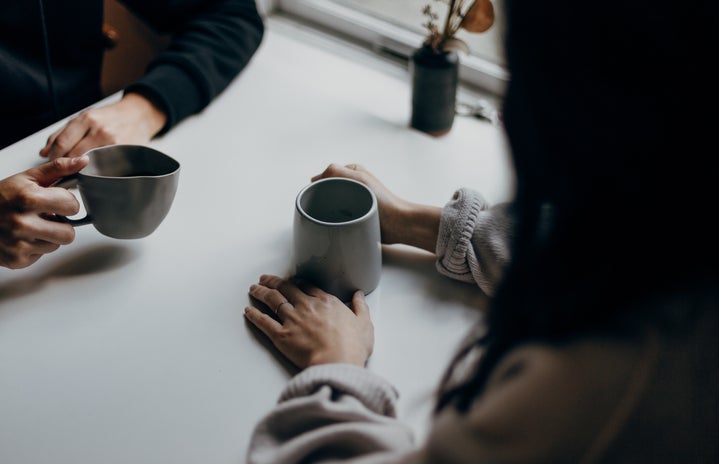Buying a coffee often triggers automatic criticism, be it disdain from frugal investors or article after article on the poor money habits of younger generations. The £2.50 you spend on a morning coffee quickly becomes more: is it a splurge? Maybe. Or, is it a gentle act of self care to get the day going? It is undoubtedly seen as a luxury, a purchase anyone could swap for instant coffee and a larger bank account.
With the average Brit buying three cups of coffee a week, it is most certainly a habit for all. But is it worth it? The question is more nuanced than just the price tag, as studies have started to show that coffee shops have a much larger social and career impact than expected.
Historically, coffee has been crucial to social settings since its first emergence in Europe in the mid-1600s. But coffee shop equivalents – a diligent tea culture in ancient China, for example – had created backbones to networking and socialization for centuries beforehand. In the UK, the first coffeehouse opened in 1652. Numbers multiplied to 2,000 within the next 50 years, and have only grown since (there are now an estimated 26,000 coffee shops throughout the country).
Though the first coffee shops were known as hubs for philosophers, scholars, and the wealthy elite, coffee shop culture has since changed to prioritize quantity and speed over intellectual debates and drawn-out discussions. Coffee is now a necessity for over 80% of adults, and the average UK adult goes to a coffee shop 152 times a year.
But this habit has a cost, particularly for younger adults. In a U.S-based survey, 25-34 year olds were found to spend an average of $2,008 per year on coffee, and 41% of survey respondents admitted that their annual coffee budget was more than they had invested in retirement for the year. It’s natural for this habit to be criticized: undoubtedly, savings and retirement are a better long-term plan than the frequent purchasing of coffee. Store-made coffee has a high markup due to demand, particularly for drinks with added milk and syrups, often up to 800% more than ingredients originally cost.
But the experience of a coffee shop is more than simply a cup of caffeine. Price-wise, much of the high markup accounts for overhead and labour costs. Customers may spend more time in a coffeeshop than they would in a restaurant, but pay a fraction of the price. The stores are often positioned in prime locations, and are fitted with an interior that prioritizes a comfortable and aesthetically-pleasing environment. When taking into account the average 93 minutes spent in the building per person during a visit, there are more impacts for the consumer than simply what they have purchased.
Recent research has found an increase in productivity for many working at coffee shops: the moderate level of ambient noise and change of scenery creates more stimulation for the brain. This improves creative performance. As a stimulant, coffee also improves memory, mood, and cognitive function. Considering the price of an office, which is often assumed to be the height of productivity, working at a coffee shop may be outstandingly cheaper and increase efficiency.
The benefits are also social: coffee culture is a prevalent source of adult socialization, networking, and bonding with coworkers. In a review of coworkers having coffee, the pleasant sensory effects of the drink were found to increase positive views of fellow coworkers studied. In short, coworker relationships were strengthened simply due to the comforting environment of drinking coffee as a group. This creates automatic emotional connections that have far-reaching effects to mental health and company cooperation.
Ultimately, there is far more to the experience of coffee shops than the purchasing of a drink. If meeting friends, a cup of coffee is more affordable than going out for a full meal, or many social events. The productive benefits of working at a coffee shop are difficult to measure but undoubtedly impactful in the long run. While the benefits of purchasing a coffee may appear slim compared to the cost, when taking into account the overall coffee shop experience, the impacts on the consumer are far greater than just caffeine.

